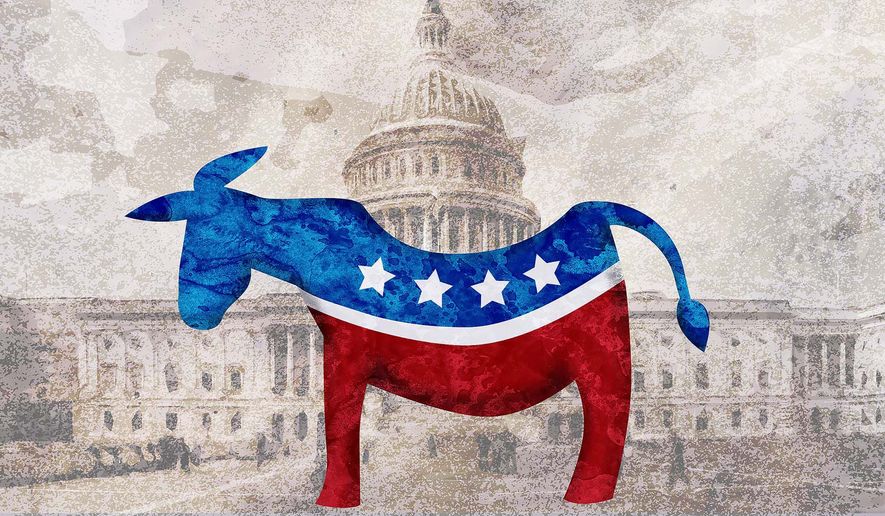OPINION:
Former Secretary of Defense Donald Rumsfeld once noted: “If history has taught anything, it’s that weakness is provocative. It entices people into doing things that they otherwise would not do.”
Let’s hope he was wrong.
Recently, President Biden slipped and fell as he ascended the stairs to Air Force One. It was, like all falls, ungraceful and difficult to watch. In its own way, however, it was totemic of the somewhat unsure start of his administration and its serial projections of weakness both at home and abroad.
The meeting with Chinese “diplomats” on March 18 in Anchorage, Alaska, was the first tangible sign that something had gone wrong. At the top of the meeting, China’s representatives felt free to lecture the United States about our electoral, judicial and social systems. In response, the State Department offered a cringe-inducing half-defense: “America’s approach will be undergirded by confidence in our dealing with Beijing — which we are doing from a position of strength — even as we have the humility to know that we are a country eternally striving to become a more perfect union.”
If you have to tell people you’re dealing from a position of strength, you’re probably not. If you’re defensive about your human rights record compared to the murderous Chinese Communist Party, you’re in real trouble.
The current administration also seems prepared to play along with the Chinese communists with respect to the Paris Agreement on climate change. The game there is that China makes vague promises about cutting emissions at some point in the distant future, while in exchange the United States promises to damage our economy and hand a sizable comparative advantage to China in real time.
How about our national border? Our southern border is being overrun by unarmed children. The current regime not only has no plans to remedy that situation, but it also steadfastly refuses to identify it as a problem/crisis/whatever. It is so bad that drug cartels openly use the roads constructed as part of the border wall complex — and abandoned by the current administration — to move drugs and slaves across the border.
What message does that send to potential adversaries?
Even when he is right, Mr. Biden can seem less than sturdy. He identified Russian President Vladimir Putin as a killer. He is almost certainly right in that assessment. In response, Russia withdrew its ambassador to the United States (will he be missed?), and, in a roundabout way, Mr. Putin issued what could be construed as a veiled threat on the president’s life.
There was no consequence for either action.
Finally, on the home front, in the wake of a call with administration officials that they felt were too fey about the lack of Asian-American appointees in the administration (apparently the vice president is insufficient), Sen. Tammy Duckworth of Illinois and Mazie Hirono of Hawaii promptly promised to hold up all nominees who were not Asian-Americans or non-heterosexual (that part seemed a little random).
They relented only after the administration promised to do better. A former Obama administration official, who remained nameless, summed it up in Politico: “This shows that Biden isn’t feared on the Hill. He’s no LBJ.”
That’s the math in Washington and every other place where there are rulers.
Almost 500 years ago, the great Italian student of politics Niccolo Machiavelli wrote that it’s better for a ruler to be feared than to be loved. He argued, correctly, that men sometimes forget the people and things they love, but they never forget those they fear.
The world is a dangerous place full of people — Chinese communists, drug cartels, former KGB agents, strong-minded senators — who prey on weakness.
It is simple human nature to gravitate toward strength. One of our most daring and durable enemies in the last 25 years, Osama bin Laden, said: “When people see a strong horse and a weak horse, by nature they will prefer the strong horse.”
He was right. The voters have given the reins to a senescent career politician and a junior senator with the unfortunate tic of giggling in response to questions. Neither seems like a particularly strong horse at the moment.
• Michael McKenna, a columnist for The Washington Times, is the president of MWR Strategies. He was most recently a deputy assistant to President Trump and deputy director of the Office of Legislative Affairs at the White House.




Please read our comment policy before commenting.